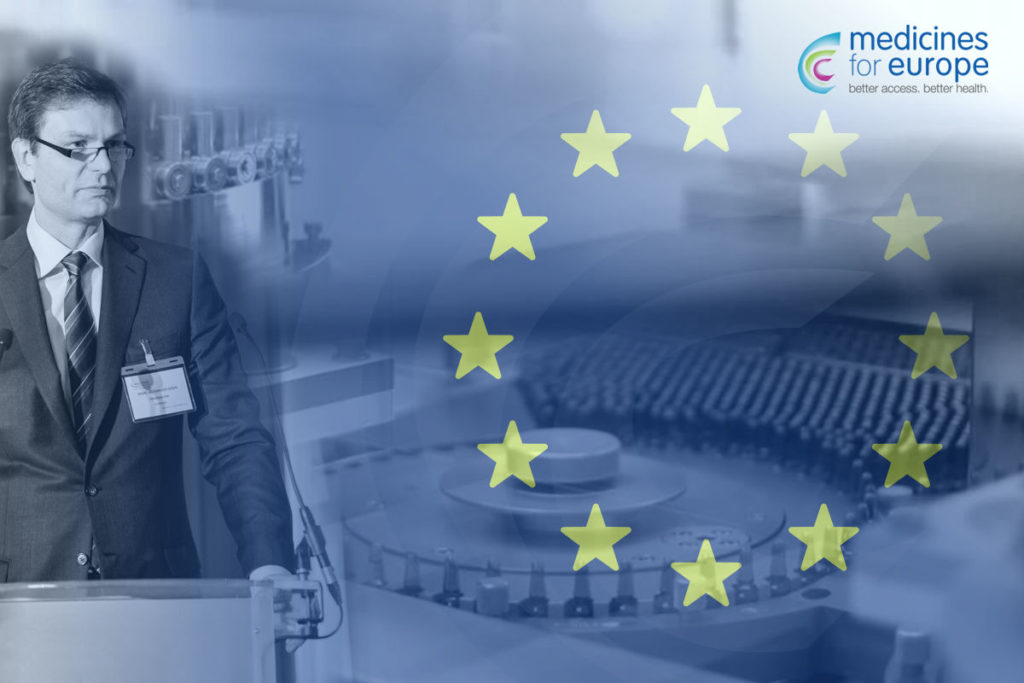



Nonetheless, we are concerned that the legislative proposal does not fully address the unintended effects of the SPC Regulation, specifically production for ‘day 1 launch’ in Europe after SPC expiry, as was clearly announced in the European Commission Single Market Strategy for Europe in 2015. The Commission published the Charles River Associates (CRA) study which showed the importance of allowing generic and biosimilar manufacturers to prepare for launch in Europe at SPC expiry – with thousands of manufacturing jobs and lower national government drugs bills at stake (see addendum below). This is underlined in the Explanatory Memorandum of today’s proposal which surprisingly is not included the draft legislative amendment. The draft also contains a few anomalies that undermine its stated intentions and give limited practical effect to the amendment for SMEs which hope to benefit from this opportunity.
In multiple reports and resolutions, the European Parliament has called on the European Commission to introduce a comprehensive SPC manufacturing waiver, covering both export and ‘day 1 launch’, to level the playing field between European and non-EU manufacturers.
Legislators (Parliament and Council) now have the possibility of improving the Commission proposal by including manufacturing for ‘day 1 launch’ and correcting the anomalies that limit its effective use for SMEs. Only a comprehensive and usable SPC manufacturing waiver would address the unintended effect of the SPC regulation that has forced European generic and biosimilar manufacturers to delocalise manufacturing outside the EU.
 Marc Alexander Mahl, President of Medicines for Europe commented that “the launch of the SPC manufacturing waiver legislative proposal is a very positive step to create manufacturing jobs in Europe, and to boost competitiveness by allowing EU companies to compete on a level playing field. However, this proposal should allow companies – especially SMEs – to prepare for ‘day 1 launch’ after expiry in Europe. Without this, European patients will not get timely access to European manufactured generic and biosimilar medicines.
Marc Alexander Mahl, President of Medicines for Europe commented that “the launch of the SPC manufacturing waiver legislative proposal is a very positive step to create manufacturing jobs in Europe, and to boost competitiveness by allowing EU companies to compete on a level playing field. However, this proposal should allow companies – especially SMEs – to prepare for ‘day 1 launch’ after expiry in Europe. Without this, European patients will not get timely access to European manufactured generic and biosimilar medicines.
For products with large investments in development and manufacturing infrastructure, like biosimilar medicines, EU `day 1 launch´ capability is a key criteria for localisation in Europe. Imported biosimilar and complex medicines from non-SPC markets will be available on ‘day 1’, while EU-based manufacturers would be specifically blocked from competing in the critical phase of market formation.
Our call now is on the European Parliament and Council to rapidly adopt the proposal with the right to produce for launch in Europe, which will increase access to medicines for patients, lower drug costs for national health budgets and benefit a dynamic European industry.
We have also gathered the key documents and resources pertaining to the SPC manufacturing waiver on the newly-launched website www.spcwaiver.com. This website aims to gather concrete and legitimate information about current SPC protection and the complete SPC manufacturing waiver for medicinal products in the EU and its consequences, as well as appropriate ways to strengthen the European economy.”
Medicines for Europe represents the generic, biosimilar and value added medicines industries across Europe. Its vision is to provide sustainable access to high quality medicines, based on 5 important pillars: patients, quality, value, sustainability and partnership. For more information please follow us at www.medicinesforeurope.com and on Twitter @medicinesforEU. For information on the SPC manufacturing waiver, please see www.spcwaiver.com.
A comprehensive and workable SPC manufacturing waiver will generate huge opportunities for Europe as highlighted in the Charles Rivers Associates study – the only independent study on this issue commissioned and published by the European Commission: